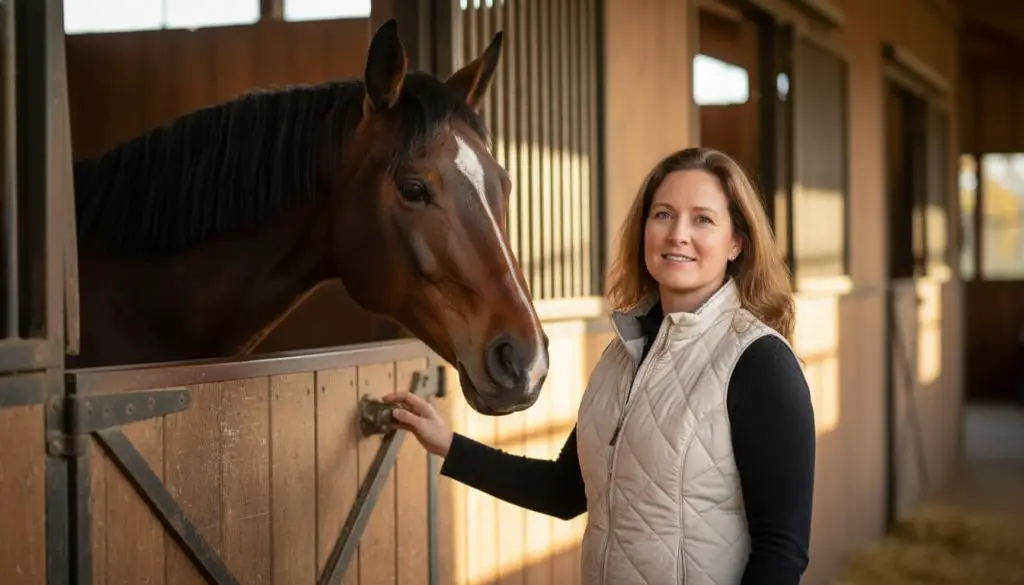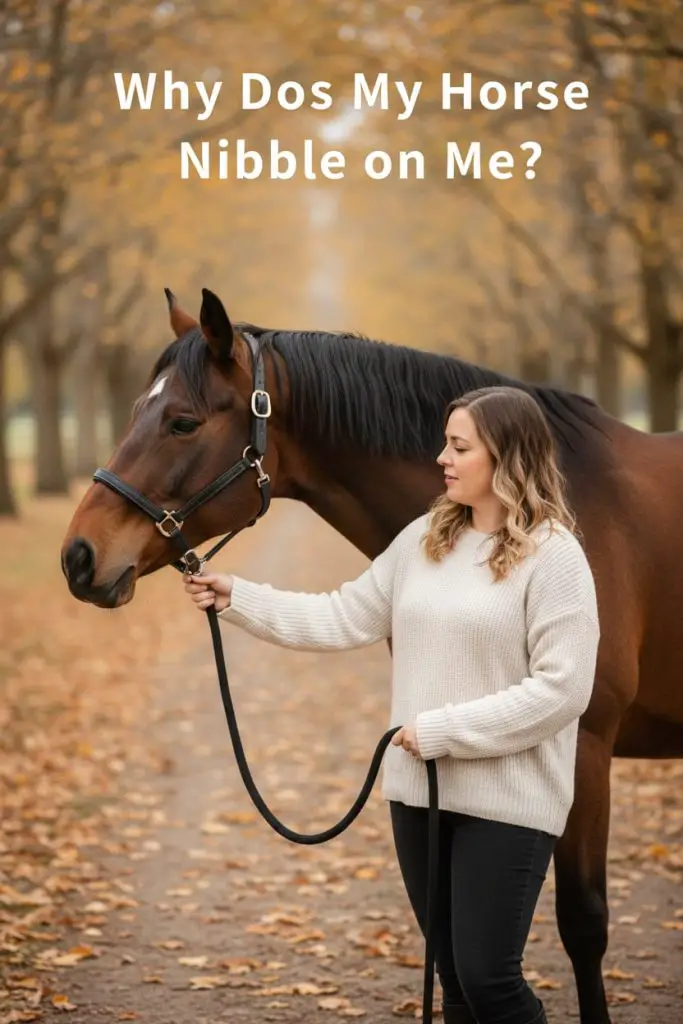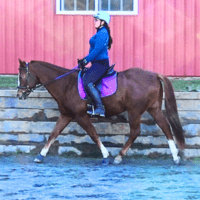Have you ever been standing next to your horse, enjoying a quiet moment, when suddenly they reach over and give your arm or sleeve a gentle nibble? At first, it might seem cute—or maybe a little weird—but this common behavior can actually say a lot about how your horse is feeling.
Just like pinned ears or a horse turning his back on you, nibbling is one of those subtle (and sometimes not-so-subtle) ways horses try to communicate with us. So what are they really saying when they start nibbling on your clothes, hands, or even your hair?
Let’s break it down.
1. Your Horse Might Be Showing Affection
Believe it or not, light nibbling can be a form of affection. Horses in a herd often groom each other by gently using their teeth—so when your horse reaches out and nibbles you, they might be treating you like a trusted herd member. I once had a mare named Greta who would gently nibble my shoulder because she wanted me to scratch her back. It was like she was trying to get me in the mood for grooming her! This kind of bonding behavior often happens during grooming or relaxed moments, and it usually comes with soft eyes and a calm body.
If your horse nibbles you gently while you’re brushing them or hanging out in the paddock, it could be their version of saying, “I like you.”
2. Curiosity Could Be the Cause
Especially with younger horses, nibbling is sometimes just exploration. Horses don’t have hands, so their mouths are one of their main tools for figuring out the world. If your horse is still learning boundaries—or just has a curious personality—they might nibble on your zipper, jacket, or even your fingers out of pure interest.
It’s not always a big emotional statement—it might just be their way of asking, “What’s this?”
3. They May Want Your Attention
Some horses learn that nibbling gets a reaction—whether that’s a laugh, a treat, or a scratch in their favorite spot. If your horse starts nibbling when you’re distracted or not engaging with them, they could be trying to say, “Hey, remember me?”
Keep an eye out for this especially when paired with nickering, nuzzling, or leaning into you.
4. Playfulness (Especially in Young Horses)
Horses are playful by nature, and light, silly nibbling can be part of that. Colts and fillies, especially, love to test the boundaries of what’s okay and what’s not. As long as the nibbling isn’t escalating or accompanied by pushy behavior, your horse might just be inviting you into a game.
It’s kind of like a toddler poking you repeatedly—cute, but a sign that you’ll need to redirect them gently if it becomes too much.
5. But Sometimes… Nibbling Can Signal Stress or Frustration
This is where context matters. If your horse is nibbling in a more aggressive or persistent way—especially paired with signs like pinned ears, tail swishing, or a tense body—it could mean they’re anxious, uncomfortable, or frustrated.
In those cases, it’s important to take a step back. Are they sore somewhere? Overstimulated? Feeling impatient or rushed? Reading their body language can give you the answers you need. (If you haven’t yet, check out What It Means When a Horse Turns His Back on You and What It Means When a Horse Pins Its Ears—both are great for learning more about subtle signs of stress.)

How to Respond to Nibbling
Whether it’s a love nibble or a request for snacks, it’s important to teach your horse what’s okay and what’s not. Here are a few simple tips:
- Set boundaries early. If the nibbling gets too rough or frequent, calmly redirect their attention or take a step back.
- Use consistent cues. Gently moving their nose away and giving them something else to do—like backing up or lowering their head—can help.
- Don’t reinforce unwanted nibbling by laughing, giving treats, or accidentally turning it into a game (unless you’re okay with it becoming a habit).
Final Thoughts
When a horse nibbles on you, it could be love, curiosity, boredom, or even discomfort. That’s why it’s so important to look at the full picture—your horse’s body language, the setting, and their overall mood.
As you get to know your horse better, you’ll start to understand the difference between a friendly nibble and a frustrated one. And when you respond with clarity and kindness, you’re not just stopping a behavior—you’re building trust and communication.
Want to keep learning about horse behavior? Be sure to read:
Because the more you understand your horse’s subtle signals, the stronger your bond becomes.


